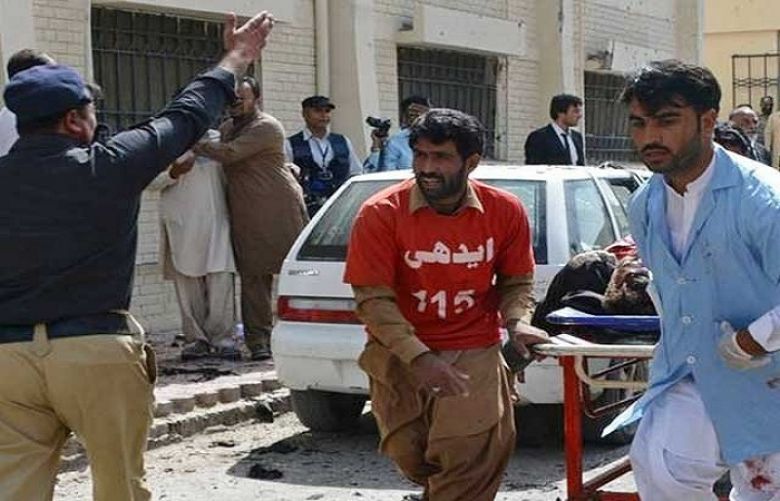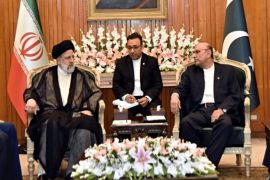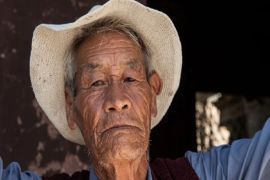The Federal Interior Ministry Chaudhry Nisar Ali Khan submitted its response to the Quetta Civil Hospital attack inquiry commission report before the Supreme Court. The SC is holding suo motu hearings on the Aug 8 suicide bombing at the Quetta Civil Hospital last year, in which 73 people, most of them lawyers, had been killed.
In Monday's hearing, the Interior Ministry submitted its objections to the report submitted by the commission, saying that observations made against the ministry and Interior Minister Chaudhry Nisar were 'unnecessary'.
Facts were not considered, the interior ministry's reply said, saying that the commission had made its observations without knowing the whole truth.
Defending the ministry's record, the statement said there had been 7,522 information-based operations and over 152,000 combing operations in the country, during which 5,611 terrorists had been arrested and 1,865 killed.
Terrorist incidents decreased after 2014, the ministry claimed, with 769 incidents recorded in 2016 compared to 1,938 in 2009.
Furthermore, the ministry claimed security alerts had been issued prior to the Army Public School and Wagah attacks, as well as other incidents.
The budget for the National Counter-Terrorism Authority had also been increased to Rs1.56 billion, it said.
Countrywide confirmation of Computerised National Identity Cards had been initiated, following which 95,959 ID cards had been cancelled and 450,000 ID cards temporarily blocked.
The Exit Control List had also been computerised, the statement said.
Additionally, VIP culture has been terminated in the ministry, and about 775 government officials sacked.
Touching on the matter of banned outfits, the statement said that three months are required in order to restrict banned organisations. It gave the example of Jamatul Ahrar, saying that a request to ban it was submitted on Aug 16, and the organisation was banned on Nov 11.
The statement clarified that Chaudhry Nisar met the leadership of the Difa-i-Pakistan Council on Oct 21, and concluded that the DPC is not a banned outfit. It added that the interior minister was aware of the presence of Muhammad Ludhianvi and the DPC.
Although the Interior Ministry's counsel, Makhdoom Ali Khan, said "we accept the commission report," he added that the report should name the interior ministry as a whole instead of Interior Minister Chaudhry Nisar.
Justice Amir Hani Muslim, who is part of the three-judge bench hearing the case, said the commission seemed to have done the job of investigation agencies. He lamented that investigative officers are not trained properly and don't work wholeheartedly.
The court rejected Khan's request for a copy of the commission report created by intelligence agencies, saying it could not be presented in court as it contains sensitive information pertaining to national security.
Justice Muslim said that the court is working in the national interest and for the rule of law. "Should we look at the interest of one person, or national interest? he asked.
The judge observed that there are some banned outfits operating in Punjab. "The federal and provincial governments will also have to look into this," Justice Muslim asserted.
"No government wants such incidents to occur," he added.
However, the judge conceded that, "It is not easy to catch a single person who spreads destruction".
During the hearing, civil society activist and lawyer Jibran Nasir also made a statement, saying that banned outfits had been facilitated and allowed to contest elections for the national and provincial elections.
Nasir said he had collected detailed information regarding the matter that he wished to present it in court.
The court directed him to submit his point of view and information as a written reply, but rejected his request to become party in the case.
The hearing of the case has been adjourned for two weeks.







